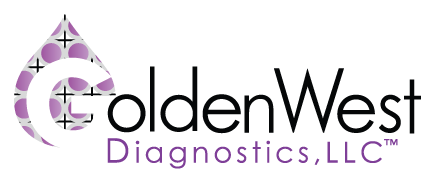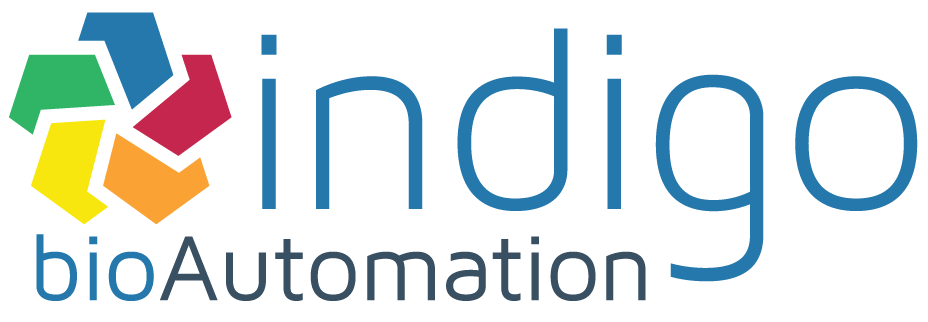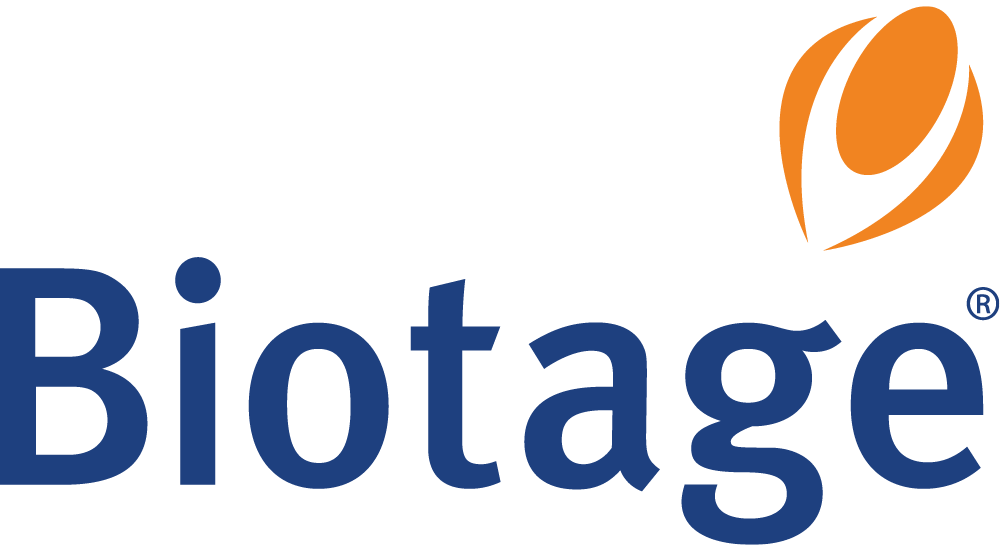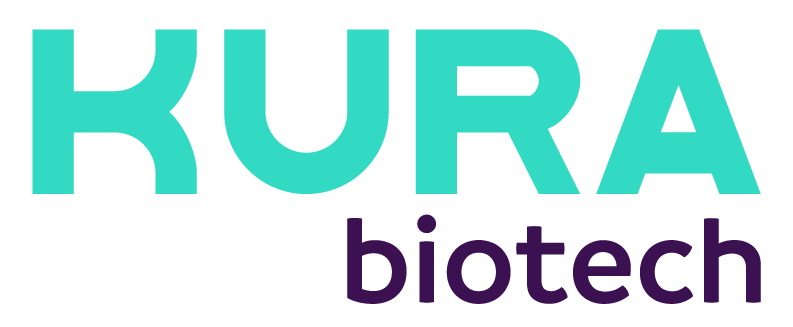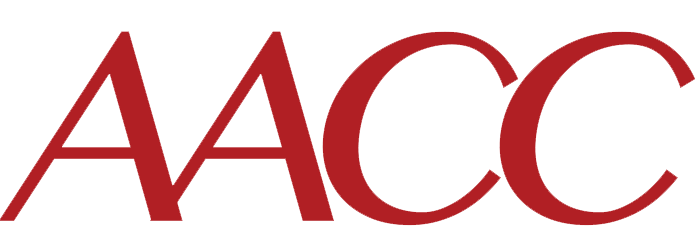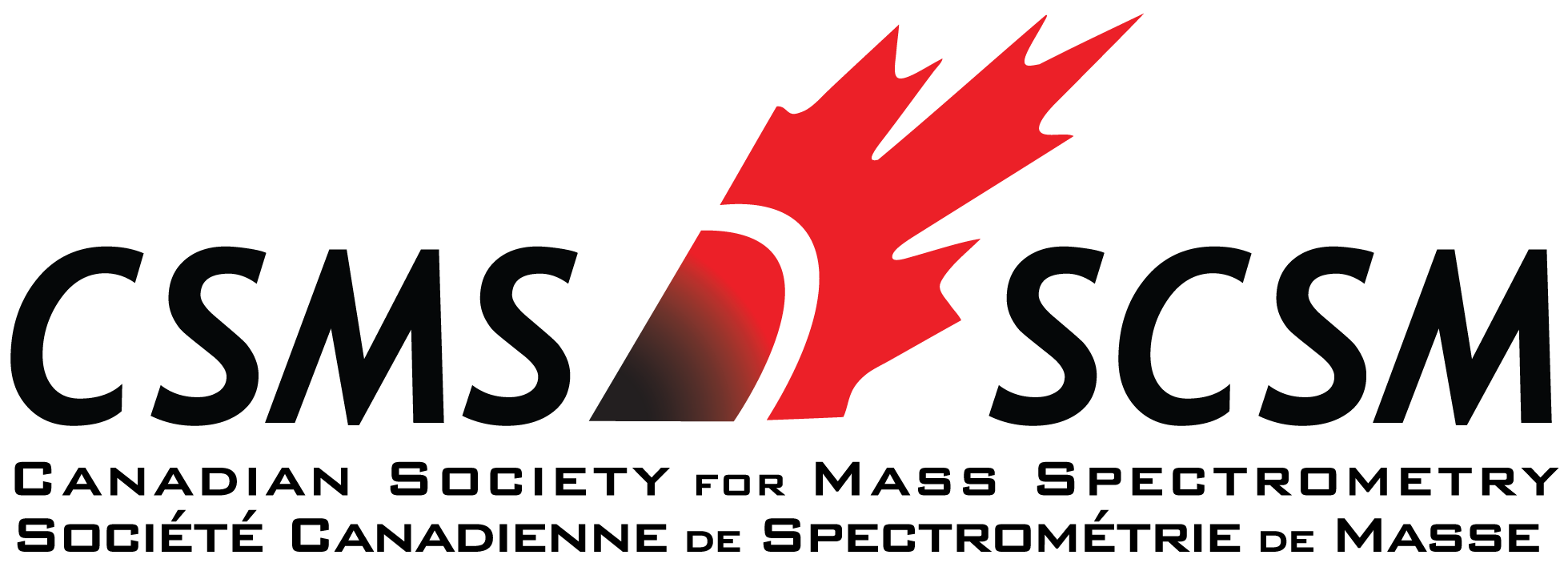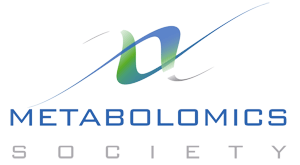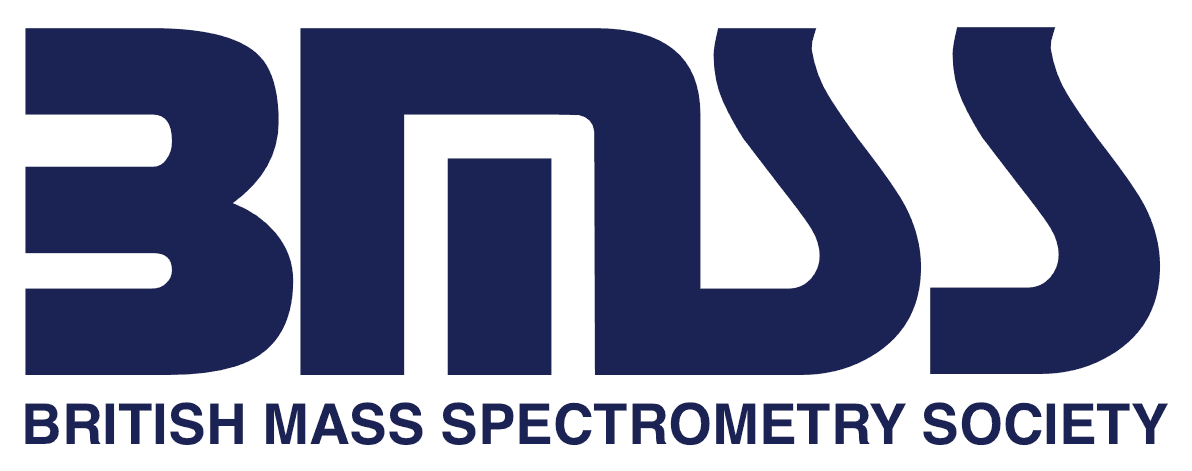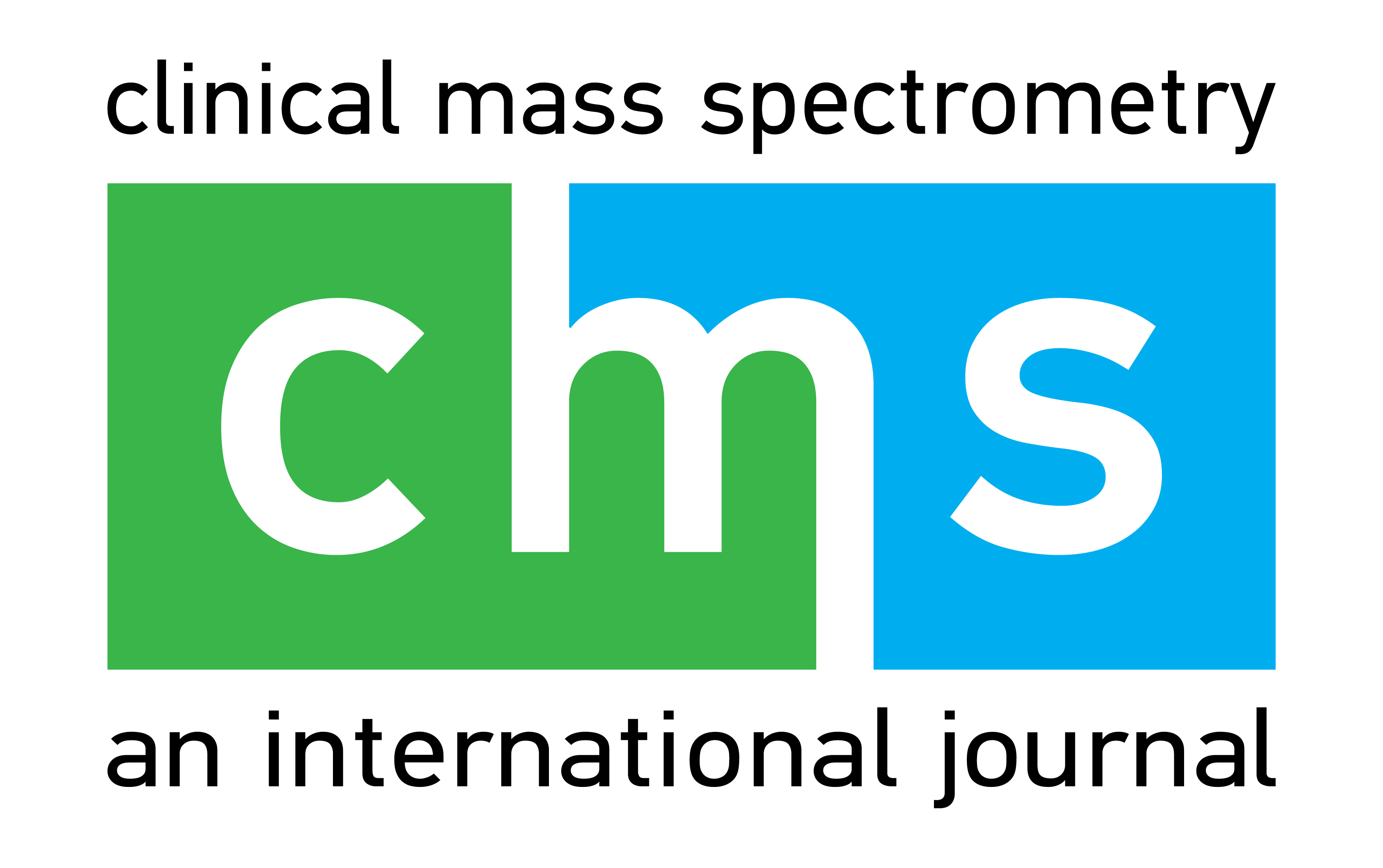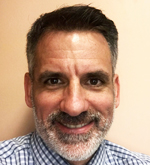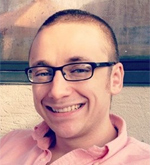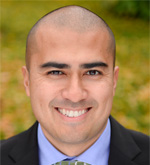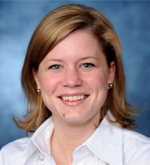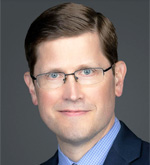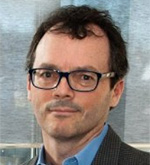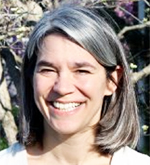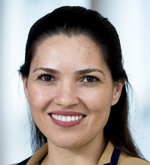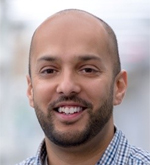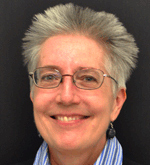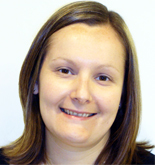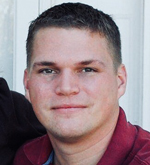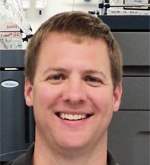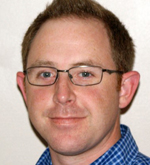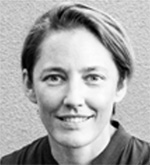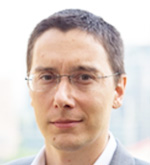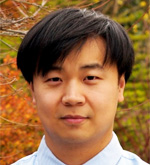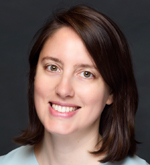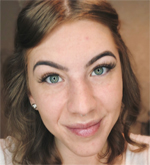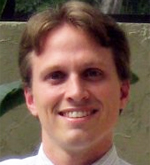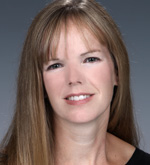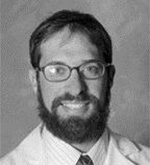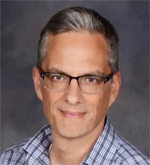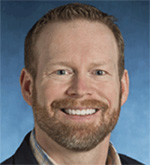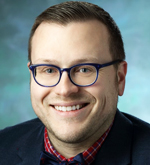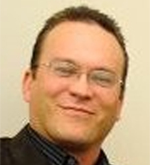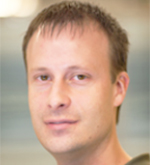MSACL 2020 USPalm Springs, Mar 29 - Apr 3 |
Details
MSACL US
Short Courses
|
UPDATE : MSACL 2020 US has been CANCELLED We are planning to provide full registration refunds. If you have a ROOM RESERVATION at the Riviera Hotel under the MSACL Group, it has been AUTOMATICALLY CANCELLED with no penalty. You can rebook at the group rate if desired by contacting the hotel directly. We are not planning to POSTPONE.
|
MSACL hosts a diverse offering of Short Courses.
Short Courses will occur over the first three days of MSACL (Sunday, Monday, Tuesday).
Courses are NOT replicated on different days.
| Course Contact Hours | ||||||
| Sunday AM | Sunday PM | Monday AM | Monday PM | Tuesday AM | ||
| Data Science | ||||||
| Data Science 101 (Beginner) Breaking up with Excel: An Introduction to the R Statistical Programming Language Daniel Holmes, MD & Will Slade, PhD Location: Room 6 Group: B |
Not in Session | STARTS < Sunday 14:00-18:00 | Monday 8:00-12:00 | Monday 13:00-17:00 | > ENDS Tuesday 8:00-12:00 | |
| Data Science 201 (Beginner-Intermediate) Going Further With R: Tackling Clinical Laboratory Data Manipulation and Modeling Patrick Mathias, MD, PhD & Shannon Haymond, PhD Location: Room 1 Group: A Cancelled |
Not in Session | STARTS < Sunday 14:00-18:00 | Monday 7:30-11:30 | Monday 12:30-16:30 | > ENDS Tuesday 7:30-11:30 | |
| Data Science 203 (Intermediate) Machine Learning : A Gentle Introduction Stephen Master, MD, PhD & Randy Julian, PhD Location: Room 8 Group: C CANCELLED |
Not in Session |
Not in Session | STARTS < Monday 8:30-12:30 | > ENDS Monday 13:30-17:30 | Not in Session | |
| Imaging | ||||||
| Imaging 202 (Beginner-Intermediate) "iMSACL": Clinical Studies using Imaging Mass Spectrometry Michelle Reyzer, PhD, and Christina Ferreira, PhD, and Sankha (Bobby) Basu, MD, PhD Location: Room 4b Group: C |
Not in Session |
Not in Session | STARTS < Monday 8:30-12:30 | > ENDS Monday 13:30-17:30 | Not in Session | |
| LC-MS | ||||||
| LC-MSMS 101 (Beginner - Intermediate) Getting Started with Quantitative LC-MS/MS in the Diagnostic Laboratory Judy Stone, PhD, Deborah French, PhD & Tim Collier, PhD Location: Room 5 Group: B Ending at 6PM on Sunday and Monday | STARTS < Sunday 8:00-12:00 | Sunday 13:00-18:00 | Monday 8:00-12:00 | > ENDS Monday 13:00-18:00 | Not in Session | |
| LC-MSMS 202 (Intermediate) Practical LC-MS Maintenance and Troubleshooting J. Will Thompson, PhD & Chris Shuford, PhD Location: Room 3 Group: A Cancelled |
Not in Session | STARTS < Sunday 14:00-18:00 | Monday 7:30-11:30 | Monday 12:30-16:30 | > ENDS Tuesday 7:30-11:30 | |
| Lipidomics | ||||||
| Lipidomics 101 (Beginner - Intermediate) Mass Spectrometry-based Lipidomics and Clinical Applications Anne K Bendt, PhD, Amaury Cazenave-Gassiot, PhD & Michael Chen, MD MSc Location: Room 7 Group: C |
Not in Session |
Not in Session | STARTS < Monday 8:30-12:30 | > ENDS Monday 13:30-17:30 | Not in Session | |
| MALDI | ||||||
| MALDI 103 (Beginner - Intermediate) MALDI-MS Fundamentals and its Emerging Role in Pathology and Laboratory Medicine Mari L. DeMarco, PhD DABCC FACB FCACB & Teesha Luehr Location: The Boardroom Group: B |
Not in Session |
Not in Session | STARTS < Monday 8:00-12:00 | Monday 13:00-17:00 | > ENDS Tuesday 8:00-12:00 | |
| Metabolomics | ||||||
| Metabolomics 201 (Intermediate) Application of High Resolution Mass Spectrometry and Metabolomics in Clinical Analysis Timothy Garrett, PhD & Erin Baker, PhD Location: Room 2 Group: A |
Not in Session | STARTS < Sunday 14:00-18:00 | Monday 7:30-11:30 | Monday 12:30-16:30 | > ENDS Tuesday 7:30-11:30 | |
| Proteomics | ||||||
| Proteomics 201 (Intermediate - Advanced) Clinical Proteomics Andy Hoofnagle, MD, PhD & Cory Bystrom, PhD Location: TBA Group: A Cancelled |
Not in Session | STARTS < Sunday 14:00-18:00 | Monday 7:30-11:30 | Monday 12:30-16:30 | > ENDS Tuesday 7:30-11:30 | |
| Sample Preparation | ||||||
| Sample Prep 201 (Beginner - Intermediate) Sample Preparation and Alternative Matrices for LC-MS Assays William Clarke, PhD & Mark Marzinke, PhD Location: Room 4a Group: C Cancelled |
Not in Session | STARTS < Sunday 14:00-18:00 | Monday 8:30-12:30 | > ENDS Monday 13:30-17:30 | Not in Session | |
| Toxicology | ||||||
| Toxicology 201 (Intermediate - Advanced) Advanced Forensic Toxicology Russell Lewis, Ph.D., F-ABFT & Robert Johnson, PhD, F-ABFT Location: Room 8 Group: C |
Not in Session |
Not in Session | STARTS < Monday 8:30-12:30 | > ENDS Monday 13:30-17:30 | Not in Session | |
Notice: Undefined index: days in /home/msacl0017/public_html/include/webpage_structure/include_subtab_content_nextgen.php(1170) : eval()'d code on line 281
Data Science 101 :: Breaking up with Excel: An Introduction to the R Statistical Programming Language
| Level: | Beginner | ||||||||||||||||||||
| Prereqs: | - knowledge of Excel - able to bring a laptop - able to pre-install software on their laptop...Namely: R and R-studio - willingness to break up with Excel | ||||||||||||||||||||
| Location: | Room 6 | ||||||||||||||||||||
| Group: | B | ||||||||||||||||||||
| Instructor(s): | Daniel Holmes, MD & Will Slade, PhD | ||||||||||||||||||||
| |||||||||||||||||||||
Daniel Holmes, MD did his undergraduate degree in Chemical Physics from the University of Toronto with a focus on Quantum Mechanics. He went to medical school at the University of British Columbia (UBC) where he also did his residency in Medical Biochemistry. He is a Clinical Associate Professor of Pathology and Laboratory Medicine at UBC and Division Head of Clinical Chemistry at St. Paul's Hospital in Vancouver. Interests include laboratory medicine statistics, clinical endocrinology, clinical lipidology and clinical mass spectrometry. Assay development efforts in the last two years have focused on assays specialized endocrine testing. William Slade, PhD did his undergraduate degree in Biology from Concord University with a focus on Recombinant Gene Technology. He completed a PhD in Biological Sciences at Virginia Tech with a focus on Biological Mass Spectrometry before postdoctoral work at the University of North Carolina at Chapel Hill in the Analytical Chemistry department. He is currently a Researcher in the Mass Spectrometry Research and Development group at Laboratory Corporation of America Holdings in Burlington, North Carolina. His interests include clinical mass spectrometry and informatics.
| |||||||||||||||||||||
| |||||||||||||||||||||
Notice: Undefined variable: late_reg in /home/msacl0017/public_html/include/webpage_structure/include_subtab_content_nextgen.php(1170) : eval()'d code on line 521
Overview: Have you ever tried to do Deming regression in Excel only to discover that it is not available? Have you had your figure rejected by a journal because the resolution was not good enough? Have you wished that you could figure out a way to stop manually transcribing your LC-MS/MS results into the LIS?
Well, your wait is over because this year at MSACL we will be offering a course for complete programming newbies that will help you get going analyzing real data related to LC-MS/MS assay development, validation, implementation and publication. The only background expected is the ability to use a spreadsheet program. The skills that you will acquire will allow you to take advantage of the many tools already available in the R language and thereafter, when you see that your spreadsheet program does not have the capabilities to do what you need, you will no longer have to burst into tears. You will be empowe-R-ed.
The course will be run over two days and time will be evenly split between didactic sessions and hands on problem solving with real data sets. Drs Holmes and Master will adopt a “no student left behind policy”. Students will be given ample time to solve mini problems taken from real life laboratory work and focused on common laboratory tasks. All attendees will need to bring a laptop with the R language installed R Studio interface installed. Students may use Windows, Mac OSX or Linux environments. Both R and R studio are free and open-source. No cash required.
Students should be prepared for learning what computer programming is really like. This may involve some personal frustration but it will be worth it.
Obtaining the Software
Instructions for installing the R language are here: http://cran.r-project.org/
Instructions for installing R Studio are here: http://www.rstudio.com/
Course Description
The course will cover:
- The major types of R variables: vectors (numerical, character, logical), matrices, data frames and lists.
- The important classes: numeric, character, list and changing between them
- Importing data from Excel
- Dealing with non-numeric instrument data: the “<10”s and “>1000”s.
- Manipulating your data: sub-setting, which, match, sort, unique, cut
- Simple statistical tests: mean, median, quantiles (normal ranges), t-tests, ANOVA, Wilcoxon.
- Data merges: matching rows between sets
- Exporting data to Excel-like format.
- Regressions: Ordinary Least Squares,Passing Bablok, Deming, weighted regressions.
- Non-linear regressions
- Looping: Doing things repeatedly
- Writing your own functions
- Making highly customized graphs: scatter plots, regression lines, histograms, box plots, qq-plots
- Putting it all together projects:
- Preparing method comparison regression and Bland Altman plots
- Preparing mass spectrometry data for upload to LIS.
EarlyBird Deadline |
Regular Deadline |
After |
|
| Student / Post-Doc (Trainee) | $80 | $96 | $135 |
| Academic / Non-Profit | $240 | $288 | $405 |
| Commercial / Industry | $400 | $480 | $670 |
Notice: Undefined index: days in /home/msacl0017/public_html/include/webpage_structure/include_subtab_content_nextgen.php(1170) : eval()'d code on line 281
Data Science 201 :: Going Further With R: Tackling Clinical Laboratory Data Manipulation and Modeling
| Level: | Beginner-Intermediate | ||||||||||||||||||||
| Prereqs: |
| ||||||||||||||||||||
| Location: | Room 1 | ||||||||||||||||||||
| Group: | A | ||||||||||||||||||||
| Instructor(s): | Patrick Mathias, MD, PhD & Shannon Haymond, PhD | ||||||||||||||||||||
| |||||||||||||||||||||
Co-Instructor: Patrick Mathias, PhD Assistant Professor, Department of Laboratory Medicine, University of Washington Patrick Mathias is the Associate Medical Director of the Informatics division in the Department of Laboratory Medicine at the University of Washington School of Medicine. His clinical and research interests lie in improving electronic health record systems to improve ordering and interpretation of laboratory tests, developing infrastructure for novel analytical technologies in the clinical laboratory, and applying analytics to improve laboratory operations and clinical care at a population level. Co-Instructor: Shannon Haymond, PhD
Ann and Robert H. Lurie Children’s Hospital of Chicago, and My lab performs research and clinical testing using mass spectrometry methods, develops new assays, and applies data analytics to enable improved quality and efficiency. My computational pathology efforts are aimed at building the capacity for advanced data analytics in laboratory medicine through innovations in infrastructure, education, and research to facilitate data-informed decision making for clinical care, operations, and quality assurance. | |||||||||||||||||||||
| |||||||||||||||||||||
Notice: Undefined variable: late_reg in /home/msacl0017/public_html/include/webpage_structure/include_subtab_content_nextgen.php(1170) : eval()'d code on line 521
Overview: Having completed your first steps into the wonderful world of data analysis with R, would you like to go further? You’ve learned the basics of R, so now it’s time to put that knowledge to work and tackle some interesting clinical applications. Along the way you will also be introduced to even more of capabilities of R and the tools developed by the amazing R community.
The course will be run over two days and time will be split between lecture sessions, individual problem solving, and a highly interactive group-level data mining of real data sets (there may even be prizes). Like the introductory course, this class will maintain the “no student left behind policy”. Students will be given time to solve problems taken from real life laboratory work and to do some more advanced analysis on large scale data sets. All attendees will need to bring a laptop with the R language installed and R Studio interface installed. Students may use Windows, Mac OSX or Linux environments. Both R and R studio are free (as in “Free Beer”) and open-source.
Students should be prepared continue to expand their skill in programming – which, as you learned in the introductory course can be a little frustrating, but not as frustrating as not being able to get the computer to do what you want at all!
Obtaining the Software
Instructions for installing the R language are here: http://cran.r-project.org/
Instructions for installing R Studio are here: http://www.rstudio.com/
Course Description
The course will cover:
- Core concepts in reproducible research
- Introduction to R-Markdown for report generation
- Conceptual basis for keeping data “tidy”
- Using the Import -> Tidy -> Transform -> Visualize -> Model -> Communicate pipeline
- Data wrangling and manipulation operations such as filtering, grouping, summarizing
- Data exploration and visualization with the ggplot2 library
- Prediction with linear regression and classification with logistic regression
- Database basics & connecting to databases
- Putting it all together project: analysis of large mass spectrometry data set using exploratory data analysis
EarlyBird Deadline |
Regular Deadline |
After |
|
| Student / Post-Doc (Trainee) | $80 | $96 | $135 |
| Academic / Non-Profit | $240 | $288 | $405 |
| Commercial / Industry | $400 | $480 | $670 |
Notice: Undefined index: days in /home/msacl0017/public_html/include/webpage_structure/include_subtab_content_nextgen.php(1170) : eval()'d code on line 281
Data Science 203 :: Machine Learning : A Gentle Introduction
| Level: | Intermediate | ||||||||||||||||||||
| Prereqs: | Data Science 101 or 201 (or equivalent experience) | ||||||||||||||||||||
| Location: | Room 8 | ||||||||||||||||||||
| Group: | C | ||||||||||||||||||||
| Instructor(s): | Stephen Master, MD, PhD & Randy Julian, PhD | ||||||||||||||||||||
| |||||||||||||||||||||
Stephen Master, MD, PhD received his undergraduate degree in Molecular Biology from Princeton University, and subsequently obtained his MD and PhD from the University of Pennsylvania School of Medicine. After residency in Clinical Pathology at Penn, he stayed on as a faculty member with a research focus in mass spectrometry-based proteomics as well as extensive course development experience in bioinformatics. He is currently Associate Professor of Pathology and Laboratory Medicine at Children’s Hospital of Philadelphia. One of his current interests is in the applications of bioinformatics and machine learning for the development of clinical laboratory assays. He would play with R for fun even if he weren't getting paid, but he would appreciate it if you didn't tell that to his department chair. Randy Julian, PhD is Founder and CEO of Indigo BioAutomation located in Indianapolis, Indiana. Randy earned a Ph.D. in Chemistry from Purdue University in 1993 and then worked in Discovery Chemistry at Eli Lilly for 14 years. At Lilly Dr. Julian worked on natural product discovery, high throughput screening for RNA anti-viral compounds and researched methods for using proteomics to optimize drug candidates in animal models. Randy founded Indigo based on informatics technology developed during his time with Lilly. Indigo now provides laboratory data analysis software which uses machine intelligence to automatically analyze over 100 million sample results per month for every major clinical laboratory in the US. Dr. Julian is an active member of the clinical mass spectrometry community, teaches short courses in statistics, informatics and analytics. Randy is the past Chairman of the Human Proteome Organization’s Standards Initiative. He is the coauthor of two international standards for analytical data. He was also the chairman of the ASTM committee on mass spectrometry data standards. Dr. Julian maintains an active research relationship with the faculty at Purdue University where he is an Adjunct Professor of Chemistry. | |||||||||||||||||||||
| |||||||||||||||||||||
Notice: Undefined variable: late_reg in /home/msacl0017/public_html/include/webpage_structure/include_subtab_content_nextgen.php(1170) : eval()'d code on line 521
Overview: Machine learning techniques have been highly successful in driving the growth of Amazon, Google, Netflix, and other companies that rely on identifying patterns in big data. More importantly, these algorithms are beginning to revolutionize clinical diagnosis and mass spectrometry, from FDA-approved retinal image analysis to robust detection of mass spec chromatographic peaks. But ... what exactly is machine learning? How does it work? How can you apply it to your own data? In this course, we will help you sort through the hype and provide an introduction to machine learning, including an overview of common approaches, known pitfalls, and other important concepts. We will include practical instruction on applying machine learning algorithms using the R statistical language, so familiarity with R at the level of the material taught in Data Science 101 and/or 201 is desirable.
EarlyBird Deadline |
Regular Deadline |
After |
|
| Student / Post-Doc (Trainee) | $80 | $100 | $120 |
| Academic / Non-Profit | $120 | $144 | $200 |
| Commercial / Industry | $250 | $300 | $350 |
Notice: Undefined index: days in /home/msacl0017/public_html/include/webpage_structure/include_subtab_content_nextgen.php(1170) : eval()'d code on line 281
Imaging 202 :: "iMSACL": Clinical Studies using Imaging Mass Spectrometry
| Level: | Beginner-Intermediate | ||||||||||||||||||||
| Prereqs: | None. | ||||||||||||||||||||
| Location: | Room 4b | ||||||||||||||||||||
| Group: | C | ||||||||||||||||||||
| Instructor(s): | Michelle Reyzer, PhD, and Christina Ferreira, PhD, and Sankha (Bobby) Basu, MD, PhD | ||||||||||||||||||||
| |||||||||||||||||||||
Michelle Reyzer, PhD received her BS in Chemistry from the College of William and Mary in Virginia in 1991, and after that worked at the NIH at the National Institute for Alcohol Abuse and Alcoholism (NIAAA) in the Laboratory of Membrane Biochemistry and Biophysics for 5 years. She then went to the University of Texas at Austin where she received a PhD in Analytical Chemistry in 2000 in the laboratory of Jennifer Brodbelt. The was followed by a post-doctoral fellowship at Vanderbilt in the laboratory of Richard Caprioli where she was introduced to MALDI Imaging Mass Spectrometry. She has been focused on the use of MALDI for imaging biological tissues for the past 14 years. Michelle is currently a Research Assistant Professor at Vanderbilt University Medical Center, and also serves as the Associate Director of the Tissue Imaging Core laboratory, where she routinely develops methods for the analysis of small molecules in tissue sections for investigators within Vanderbilt as well as external collaborators. In addition, Michelle oversees the collaboration and service projects for the National Research Resource for Imaging Mass Spectrometry. Christina R. Ferreira, PhD received her PhD in 2006 in the area of animal biotechnology at the Sao Paulo State University in Brazil and soon after started research on developing methods and applying mass spectrometry to address reproductive biology questions with Marcos Eberlin. In 2010 she moved to Purdue University for a post-doctoral training focused on DESI-MS imaging and other ambient MS ionization methods advised by R. Graham Cooks. She currently works with DESI-MS imaging and exploratory analysis of small molecules using the MRM-Profiling method at the Purdue Metabolite Profiling Facility at Bindley Bioscience Center. She also serves as the project manager for a large effort (Purdue Make-It System) that introduced and is developing the use of DESI-MS for high-throughput screening and analysis of chemical reactions. Sankha (Bobby) Basu, MD, PhD received his BS in Biology and Chemical Engineering in 2003 at MIT and obtained his MD and PhD (Pharmacology) degrees in 2013 from the University of Pennsylvania School of Medicine. His thesis work involved the development and application of stable isotope LC-MS/MS methods to study mitochondrial disease, which was conducted in the laboratory of Dr. Ian Blair. He then went back to Boston to complete a residency in Clinical Pathology and a fellowship in Medical Microbiology at the Brigham and Women's Hospital (BWH). Following his clinical training, he joined the laboratory of Dr. Nathalie Agar at BWH as a post-doctoral research fellow working on a variety of applications including intraoperative MS and MALDI MSI. He recently joined the faculty at BWH as Assistant Director of Clinical Chemistry and Mass Spectrometry and Instructor of Pathology at Harvard Medical School. His clinical roles include the development and implementation of LC-MS methods in clinical chemistry and MALDI TOF based microbial identification in microbiology. Additionally, he continues his work with the Agar lab on clinical and translational applications of MS. | |||||||||||||||||||||
| |||||||||||||||||||||
Notice: Undefined variable: late_reg in /home/msacl0017/public_html/include/webpage_structure/include_subtab_content_nextgen.php(1170) : eval()'d code on line 521
Overview: The past two decades we seen considerable scientific and technological advancements in imaging mass spectrometry (IMS), as these approaches continue to be implemented in research and industry. There has, however, been limited adoption of these techniques into the clinical arena, in part due to gaps between the mass spectrometrists developing these tools, and the clinical stakeholders, such as surgeons and pathologists, who may one day use them in their practices.
The goal of this course is to bridge these gaps by (1) providing an overview of the principles, strengths, limitations and applications of IMS techniques, such as MALDI-IMS and ambient mass spectrometry (AMS), and (2) offering insight into clinical workflows and potential opportunities for applications. The target audiences include both clinicians, surgeons, and pathologists interested in learning more about IMS applications as well as mass spectrometrists interested in clinical applications of IMS. The morning session will focus on MALDI IMS, while the afternoon will cover ambient MS.
EarlyBird Deadline |
Regular Deadline |
After |
|
| Student / Post-Doc (Trainee) | $40 | $48 | $70 |
| Academic / Non-Profit | $120 | $144 | $200 |
| Commercial / Industry | $250 | $300 | $350 |
Notice: Undefined index: days in /home/msacl0017/public_html/include/webpage_structure/include_subtab_content_nextgen.php(1170) : eval()'d code on line 281
LC-MSMS 101 :: Getting Started with Quantitative LC-MS/MS in the Diagnostic Laboratory
| Level: | Beginner - Intermediate | ||||||||||||||||||||
| Prereqs: | |||||||||||||||||||||
| Location: | Room 5 | ||||||||||||||||||||
| Group: | B | ||||||||||||||||||||
| Instructor(s): | Judy Stone, PhD, Deborah French, PhD & Tim Collier, PhD | ||||||||||||||||||||
| |||||||||||||||||||||
Judy Stone, MT (ASCP), PhD, DABCC has worked with LC-MS in diagnostic laboratories since 1999. Her clinical practice involved small molecule method development, instrument to instrument and instrument to LIS interfacing, LC-MS automation, monitoring quality of LC-MS methods in production and staff training for clinical LC-MSMS. She served as faculty chair for the 2009 AACC online certificate program “Using Mass Spectrometry in the Clinical Laboratory”, as a scientific committee member for the MSACL Practical Training track, and is editor-in-chief for the AACC Clinical Laboratory News quarterly feature series on Clinical LC-MS. She enjoys documenting and presenting esoteric as well as absurdly common LC-MS problems in creative ways in order to help trainees learn troubleshooting (and avoid repeating her mistakes). Deborah French Ph.D., DABCC (CC, TC) is currently Assistant Director of Chemistry and Director of Mass Spectrometry at the University of California San Francisco Clinical Laboratories. Her work currently focuses on the development and validation of LC-MS/MS assays for small molecules, specifically therapeutic drug monitoring, steroid hormones and toxicology. Deborah received her Ph.D. in biochemistry from the University of Strathclyde in Glasgow, Scotland and then completed a postdoctoral fellowship at St. Jude Children’s Research Hospital in Memphis, TN. She subsequently completed a ComACC Clinical Chemistry postdoctoral fellowship under the direction of Dr Alan Wu at the University of California San Francisco and is now board certified in Clinical Chemistry and Toxicological Chemistry by the American Board of Clinical Chemistry. Timothy Collier, PhD is an Associate Scientific Director for Quest Diagnostics - Cleveland HeartLab Cardiometabolic Center of Excellence, where he oversees the technical performance of laboratory operations. Previously as a Sr. R&D Scientist, his responsibilities included the identification and development of assays for cardiovascular biomarkers. Prior to joining Cleveland HeartLab, he was a Post-Doctoral Research Scholar in Molecular Oncology and Hematology at Washington University School of Medicine in St. Louis, MO, focusing on the identification of drug-resistance mechanisms and structural studies of cancer-driving mutations using quantitative mass spectrometry. | |||||||||||||||||||||
| |||||||||||||||||||||
Notice: Undefined variable: late_reg in /home/msacl0017/public_html/include/webpage_structure/include_subtab_content_nextgen.php(1170) : eval()'d code on line 521
Overview: Is your laboratory under pressure to purchase an LC-tandem MS or is the ROI you wrote last year haunting you now? This short course is designed for attendees implementing quantitative LC-tandem MS for patient testing who have laboratory medicine experience but no mass spectrometry training - CLS bench analysts, supervisors, R&D scientists, and laboratory directors. Theoretical concepts necessary for a robust implementation of clinical mass spectrometry will be presented – but the emphasis is on practical recommendations for:
- LC-MS/MS system purchasing
- site preparation and installation
- defining preliminary MSMS and LC parameters for your first method
- selecting and optimizing sample preparation for your first method
- choosing internal standards, solvents, and water, making reagents and calibrators
- adjusting sample preparation, LC and MSMS parameters to achieve the desired assay performance
- establishing data analysis & batch review criteria
- pre-validation stress testing and method validation
- preventative maintenance and troubleshooting
- maintaining quality in production.
Previous exposure to the principles of clinical method validation, either didactic or practical, is assumed. A new feature of the course in 2020 is the transition of several course components to online using Google Classroom. This upgrade makes time for more interactive learning in small groups during the meeting. Online content will be available to registrants only, for several weeks before and after, as well as during the meeting. Before the meeting, we recommend review of selected files for download (e.g. LC-MS acronyms and definitions) and viewing one or more short introductory online lectures (or passing a pre-course quiz as an alternative). Google Classroom access and download file information will be included in your registration confirmation email.
A post-course online exam will be available, with a certificate of completion for those who take and pass the exam within the examination window of two weeks after the meeting.
EarlyBird Deadline |
Regular Deadline |
After |
|
| Student / Post-Doc (Trainee) | $80 | $96 | $135 |
| Academic / Non-Profit | $240 | $288 | $405 |
| Commercial / Industry | $400 | $480 | $670 |
Notice: Undefined index: days in /home/msacl0017/public_html/include/webpage_structure/include_subtab_content_nextgen.php(1170) : eval()'d code on line 281
LC-MSMS 202 :: Practical LC-MS Maintenance and Troubleshooting
| Level: | Intermediate | ||||||||||||||||||||
| Prereqs: | Experience with LC-MS systems. | ||||||||||||||||||||
| Location: | Room 3 | ||||||||||||||||||||
| Group: | A | ||||||||||||||||||||
| Instructor(s): | J. Will Thompson, PhD & Chris Shuford, PhD | ||||||||||||||||||||
| |||||||||||||||||||||
Co-Instructor: Will Thompson, PhD Dr. Thompson received his Ph.D. in Analytical Chemistry from the University of North Carolina at Chapel Hill under Professor James Jorgenson in 2006. Following his Ph.D. he pursued a career in the application of UHPLC with high resolution mass spectrometry in the Disease and Biomarker Proteomics group of Dr. Arthur Moseley at GlaxoSmithKline, leaving GSK in 2008 to join Dr. Moseley in establishing the Duke Proteomics Core Facility. Dr. Thompson is currently the Assistant Director of the Duke Proteomics and Metabolomics Shared Resource, and a Research Assistant Professor in Department of Pharmacology and Cancer Biology. His research interests involve improving the throughput and sensitivity of unbiased and targeted proteomics and metabolomics approaches, with an eye towards generating assays which are easily translatable to the diagnostic laboratory. Co-Instructor: Christopher Shuford, PhD Chris Shuford, Ph.D., is Technical Director for research and development at LabCorp’s Center for Esoteric Testing in Burlington, North Carolina. Chris received his B.S. in Chemistry & Physics at Longwood University and obtained his Ph.D. in Bioanalytical Chemistry from North Carolina State University under the tutelage of Professor David Muddiman, where his research focused on applications of nano-flow chromatography (<500 nL/min) for multiplexed peptide quantification using protein cleavage coupled with isotope dilution mass spectrometry (PC-IDMS). In 2012, Chris joined LabCorp’s research and development team where his efforts have focused on development of high-flow chromatographic methods (>1 mL/min) for multiplexed and single protein assays for clinical application. | |||||||||||||||||||||
| |||||||||||||||||||||
Notice: Undefined variable: late_reg in /home/msacl0017/public_html/include/webpage_structure/include_subtab_content_nextgen.php(1170) : eval()'d code on line 521
Overview: The general goal of the course is to enable practitioners of LC-MS/MS in the clinical laboratory to quickly recognize and diagnose specific problems with instrumentation, in order to decrease downtime and cost of repairs. The course includes ‘best practices’ for instrumentation installation, upkeep and maintenance, practical troubleshooting workflows for LC and MS, and will use problem sessions to reinforce skillsets. Although the course uses examples from specific instrumentation for demonstration, the content is geared to be vendor-neutral and applicable to all LC-MS systems. Additionally, we will provide an opportunity to have instrumentation troubleshooting questions from your laboratory addressed by the facilitators.
Brief outline of course content:
- General “Best Practices” for Successful LC/MS Operation
- Best Practices; Getting Started on the Right Foot
- Breaking the System Down
- System Suitability! What is it, and how do I properly implement?
- Focus on Liquid Chromatography
- Diagnostics using the “heartbeat” of your Chromatographic system
- Key System components and where things go wrong
- LC troubleshooting workflow
- Maintenance Intervals; service contract or do-it-yourself?
- Problem sets
- Focus on Mass Spectrometry
- Discussion of Source, Transfer Optics, Vacuum and how each is critical to your system
- MS Troubleshooting workflow
- Ion optics cleaning and upkeep; what is ‘charging’?
- Problem sets
- Integrated System
- Ionization
- System Communications
- Multi-vendor configurations
- Strategies to simplify
- Integrated real-lab problem scenarios and team exercises
While some basics of instrument component operation will be covered, it will be most beneficial to scientists with experience actively using LC-MS/MS as an analysis tool. While an in-depth discussion of how to operate each individual instrument is surely outside the scope of any short course, specific system setups will be used as examples and attendees will be encouraged to ask questions about specific systems in their own laboratories.
EarlyBird Deadline |
Regular Deadline |
After |
|
| Student / Post-Doc (Trainee) | $80 | $96 | $135 |
| Academic / Non-Profit | $240 | $288 | $405 |
| Commercial / Industry | $400 | $480 | $670 |
Notice: Undefined index: days in /home/msacl0017/public_html/include/webpage_structure/include_subtab_content_nextgen.php(1170) : eval()'d code on line 281
Lipidomics 101 :: Mass Spectrometry-based Lipidomics and Clinical Applications
| Level: | Beginner - Intermediate | ||||||||||||||||||||
| Prereqs: | Interest in LC-MS, clinical sciences, laboratory medicine, etc. AND a joint interest in lipids. | ||||||||||||||||||||
| Location: | Room 7 | ||||||||||||||||||||
| Group: | C | ||||||||||||||||||||
| Instructor(s): | Anne K Bendt, PhD, Amaury Cazenave-Gassiot, PhD & Michael Chen, MD MSc | ||||||||||||||||||||
| |||||||||||||||||||||
With a MSc in Marine Biotechnology (Greifswald University, Germany) and a PhD in Biochemistry (Cologne University, Germany) in close collaboration with industry, Anne Bendt has always been working on topics which are translatable into applications outside of the laboratory. Driven by her fascination for infectious diseases, she joined the National University of Singapore (NUS) in 2004 to develop lipidomics tools for tuberculosis studies. She is now a Principal Investigator at the Life Sciences Institute, NUS, focussing on translation of mass spec technologies into clinical applications, primarily for lipids and small molecules. Additionally, she is serving as the Associate Director of the Singapore Lipidomics Incubator (SLING) being in charge of operations and commercialization. Anne is passionate about training and education and has made substantial contributions to SLING’s various workshops and the highly successful ‘ic lipid’ training course. Research Assistant Prof. Cazenave-Gassiot is an early-career researcher and an expert in mass spectrometry-based lipidomics. He graduated with a PhD in analytical chemistry at the University of Southampton (UK), under the supervision of Dr John Langley, specialising in supercritical fluid chromatography and mass spectrometry. His interest in lipids started while a postdoc in the team of Professor Anthony Postle, still in Southampton. A member of SLING since 2009, his research centres on separation sciences, mass spectrometry, and their applications to life sciences, especially lipid biochemistry. He has developed chromatographic and mass spectrometric methods for the identification and quantification of lipids in diverse biological systems. This has included successful local and international collaborations. Michael Chen did his undergraduate degree in Biochemistry, and subsequently obtained his MD from McGill University. After residency in Laboratory Medicine at McGill, he completed his Master’s Degree (McGill University and University of Victoria) as part of the Clinician Investigator Program in Experimental Medicine with a focus on Clinical Proteomics. He also received fellowship training in clinical lipidology. Michael is also a Medical co-Director at the Victoria Lipid Clinic. Dr Chen’s research interests focus on clinical and translational mass spectrometry. His current medical practice and research emphasizes on the following domains: (1) management of inherited dyslipidemia (2) biomarker verification and validation using mass spectrometry-based technique (3) implementation of mass spectrometry assays in clinical laboratory (4) standardization and utilization of remnant biospecimens for biobanking. | |||||||||||||||||||||
| |||||||||||||||||||||
Notice: Undefined variable: late_reg in /home/msacl0017/public_html/include/webpage_structure/include_subtab_content_nextgen.php(1170) : eval()'d code on line 521
Overview: This 8-hr course is meant to (1) create awareness for the importance and therefore potential value of lipid testing beyond cholesterol and triglycerides for future clinical applications. We will (2) then outline currently available technologies and their respective opportunities and challenges, and (3) discuss candidate molecules in the context of two case studies. (4) Finally, this short course is designed to be engaging thus will require some active participation via online live-feedback.
1) Looking beyond cholesterol and TAG:
- Gain an understanding of the universe of lipids, how they are intricately linked to biology and their implications in health and diseases
- Potential of blood based lipid testing
- Identify physiologically relevant candidate lipids for adoption by the clinical community, for future studies towards establishing clinical utility
2) Current lipidomics R&D workflows:
- Path of translation from R&D laboratory-style methods towards robust and quantitative assays with appropriate turnaround times
- Pre-analytics (sampling requirements, plasma vs serum, storage, etc.)
- Analytics (i.e. batches, internal standards, lipid extractions, direct infusion vs LC-MS and LC-MS/MS, quality assurance)
- Post-analytics (raw data processing, lipid annotations, quality control, quantification),
- Ongoing harmonization efforts
3) Case studies of markers that have advanced to clinical settings:
- Examples of markers that have already been implemented in a clinical setting in larger scale studies, to illustrate the feasibility and technical tractability, the clinical impact of lipid testing and its value on overall healthcare
4) Outreach and Engagement between the analytical scientist specialized in mass spectrometry of lipids, the clinician researcher and laboratory medicine as the end user are key to the development of impactful / useful lipidomics in clinical applications.
EarlyBird Deadline |
Regular Deadline |
After |
|
| Student / Post-Doc (Trainee) | $40 | $48 | $70 |
| Academic / Non-Profit | $120 | $144 | $200 |
| Commercial / Industry | $250 | $300 | $350 |
Notice: Undefined index: days in /home/msacl0017/public_html/include/webpage_structure/include_subtab_content_nextgen.php(1170) : eval()'d code on line 281
MALDI 103 :: MALDI-MS Fundamentals and its Emerging Role in Pathology and Laboratory Medicine
| Level: | Beginner - Intermediate | ||||||||||||||||||||
| Prereqs: | Attendees should have some background in mass spectrometry and the basics of clinical and/or analytical chemistry, but this is not essential. | ||||||||||||||||||||
| Location: | The Boardroom | ||||||||||||||||||||
| Group: | B | ||||||||||||||||||||
| Instructor(s): | Mari L. DeMarco, PhD DABCC FACB FCACB & Teesha Luehr | ||||||||||||||||||||
| |||||||||||||||||||||
Mari L. DeMarco's (Clinical Associate Professor, Department of Pathology and Laboratory Medicine, University of British Columbia, Vancouver, Canada; Michael Smith Foundation for Health Research Scholar) clinical service focuses on development of novel mass spectrometry assays in support of the clinical laboratory at St Paul's Hospital, Providence Health Care. Her research lab develops strategies for quantitative MS workflows for protein biomarkers and leverages MALDI-TOF MS instrumentation for assay design and implementation. | |||||||||||||||||||||
| |||||||||||||||||||||
Notice: Undefined variable: late_reg in /home/msacl0017/public_html/include/webpage_structure/include_subtab_content_nextgen.php(1170) : eval()'d code on line 521
Overview: This course introduces the key aspects of MALDI-MS, and current and emerging applications in medicine. This course is designed for those interested in developing, implementing and/or refining clinical applications of MALDI-MS. Didactic sessions will be followed by tutorials/cases where participants will get hands-on experience operating actual MALDI-TOF MS instruments.
Day-1 will focus on general instrument operation, sample prep and data analysis. This will be followed by a more in-depth discussion and presentation of specific applications for qualitative and quantitative analysis of peptides and proteins. We will highlight both the strengths and weaknesses of MALDI-MS, and illustrate potential MALDI-MS applications to patient care. In each section we will discuss relevant experimental design/operation, assay development, analytical validation and utility. Basic “how-to guides” will be presented.
Day-2 will focus on MALDI tissue imaging, genotyping, toxicology and other emerging applications of MALDI in pathology and laboratory medicine. Expert guest lectures will give a targeted “real-world” lecture followed by a question-and-answer period. The course will conclude with an informal question-and-answers/discussion session centered on topics of specific interest to the participants.
Specific topics covered in this course include the following:
- Introduction to MALDI-MS: how a MALDI-MS instrument works; advantages and disadvantages of MALDI-MS; variations on the laser desorption/ionization theme – MALDI, SELDI, DIOS, DESI, LAESI, etc; different instrument configurations and analyzer types; advances in instrumentation; the basics of how to generate a spectrum and critical practical considerations (e.g., selection of matrix, laser power, shot number and other experimental variables).
- Qualitative protein workflows: applications in Chemistry and Clinical Microbiology, including pathogen ID: basic principles; strengths & weaknesses; the laboratory process; development and application of databases for automatic interpretation of MALDI spectra (concepts); systems available for FDA approved pathogen identification and their features.
- Quantitative protein workflows and post-translational modifications: quantification by MALDI-MS; TOF-TOF quantification; related quantitative strategies; loss mass analyte analysis; approach to developing new assays by MALDI-TOF; sample processing (dilution, concentration, purification, etc.; transfer to MALDI plate; matrix choice and deposition; instrument parameters).
- Informatics: databases, software options, data analysis and interpretation.
- Genomics & toxicology: applications of MALDI to genotyping and toxicological investigations.
- Mass Spectrometry Imaging: Fundamentals; strengths & weaknesses; sample considerations; tissue processing and matrix application; clinical applications of MALDI imaging and profiling by MS.
EarlyBird Deadline |
Regular Deadline |
After |
|
| Student / Post-Doc (Trainee) | $60 | $70 | $100 |
| Academic / Non-Profit | $180 | $215 | $300 |
| Commercial / Industry | $300 | $360 | $500 |
Notice: Undefined index: days in /home/msacl0017/public_html/include/webpage_structure/include_subtab_content_nextgen.php(1170) : eval()'d code on line 281
Metabolomics 201 :: Application of High Resolution Mass Spectrometry and Metabolomics in Clinical Analysis
| Level: | Intermediate | ||||||||||||||||||||
| Prereqs: | LC/MS hands on experience. | ||||||||||||||||||||
| Location: | Room 2 | ||||||||||||||||||||
| Group: | A | ||||||||||||||||||||
| Instructor(s): | Timothy Garrett, PhD & Erin Baker, PhD | ||||||||||||||||||||
| |||||||||||||||||||||
Co-Instructor: Timothy Garrett, PhD Dr. Garrett received his undergraduate degree from the University of Georgia in Chemistry graduating Summa Cum Laude with Highest Honors. As an undergraduate, he worked in the lab of Dr. I. Jonathan Amster on the characterization of bacterial proteins using MALDI-TOF. After 2 years in industry, he enrolled in the PhD program at the University of Florida working under the direction of Dr. Richard A. Yost. As a graduate student, he worked on the first imaging mass spectrometry based ion trap instrument through a partnership with Thermo and studied the disposition of phospholipids in brain tissue. He is currently an Associate Professor in the Department of Pathology at the University of Florida, where he is Associate Director for the Southeast Center for Integrated Metabolomics (SECIM). Dr. Garrett has over 20 years of experience in the field of mass spectrometry spanning both instrument and application development. His background has involved the application of the ‘Omics from the development of MALDI based approaches to analyze proteins in bacteria to the development of imaging mass spectrometry instrumentation and application for analyzing small molecules in tissue specimens; his main focus is currently the translation of LC-HRMS based metabolomics to clinical diagnostics. Prof Garrett is the author of over 60 publications and is an Editorial Board member for Clinical Mass Spectrometry and PLOSOne. His current interest are in the application of direct tissue analysis approaches such as MALDI, DESI, and LMJSSP as well as the use of high resolution mass spectrometry in metabolomics and routine diagnostics. He enjoys the interplay between technological advancement and clinical analysis providing unique opportunities and experiences to develop the future diagnostics. Co-Instructor: Erin Baker, PhD Dr. Erin Baker is a bioanalytical chemist with more than 16 years' experience utilizing ion mobility spectrometry in conjunction with mass spectrometry (IMS-MS) to study environmental and biological systems. In the last 10 years she has worked primarily on IMS-MS applications in the field of proteomics and more recently she has worked to optimize IMS-MS metabolomic, glycomic and lipidomic separations. Her research involves the development and evaluation of high-throughput IMS-MS, SPE-IMS-MS and LC-IMS-MS analyses to quickly study numerous samples in a short time period without losing valuable biological information, as well as assessing the number and quality of features detected with IMS-MS for comparison with existing MS platforms. Dr. Baker is also presently working with the PNNL Informatics team to design and implement software tools that automatically analyze the complex multidimensional SPE-IMS-MS and LC-IMS-MS data. | |||||||||||||||||||||
| |||||||||||||||||||||
Notice: Undefined variable: late_reg in /home/msacl0017/public_html/include/webpage_structure/include_subtab_content_nextgen.php(1170) : eval()'d code on line 521
Overview: Metabolomics describes the analysis of the small molecules present in our body and ingested from the surrounding environment (i.e. drugs, pesticides, etc.). The analysis of these metabolites has recently been utilized to discover new markers of disease and perturbed metabolic pathways. Metabolomic analyses can be performed with either targeted or untargeted measurements. In targeted studies, only a small subset of metabolites is analyzed and this prevalent in clinical analyses for measurements such as those for newborn screening. Untargeted measurements, however, study all possible small molecules in a single injection and heavily rely on the use of high resolution mass spectrometry to precisely measure the m/z values across many samples. Untargeted measurements are almost always coupled to either gas or liquid chromatography or ion mobility as the retention time or mobility provides an important secondary distinguishing characteristic of each specific metabolite. It is expected that both targeted and untargeted metabolomic measurements will have an important place in future clinical studies.
Given the growth of metabolomics over the past several years, the use of high resolution mass spectrometry has rapidly progressed. High resolution approaches to measure small molecules offer several advantages for clinical analyses such as confirmation via accurate mass of the precursor and product ions and an evaluation of the isotopic abundance. This short course will cover the application of high resolution mass spectrometry to both quantitative and semi-quantitative analyses with a focus on metabolomics.
Topics in this short course include: mass accuracy for identification, tandem mass spectrometry, quantitative aspects of high resolution mass spectrometry, identifying and measuring the metabolome, statistical analysis, ion mobility spectrometry, and liquid and gas chromatography coupled to high resolution MS.
EarlyBird Deadline |
Regular Deadline |
After |
|
| Student / Post-Doc (Trainee) | $80 | $96 | $135 |
| Academic / Non-Profit | $240 | $288 | $405 |
| Commercial / Industry | $400 | $480 | $670 |
Notice: Undefined index: days in /home/msacl0017/public_html/include/webpage_structure/include_subtab_content_nextgen.php(1170) : eval()'d code on line 281
Proteomics 201 :: Clinical Proteomics
| Level: | Intermediate - Advanced | ||||||||||||||||||||
| Prereqs: | Practical knowledge of quantitative mass spectrometry. | ||||||||||||||||||||
| Location: | TBA | ||||||||||||||||||||
| Group: | A | ||||||||||||||||||||
| Instructor(s): | Andy Hoofnagle, MD, PhD & Cory Bystrom, PhD | ||||||||||||||||||||
| |||||||||||||||||||||
Co-Instructor: Andy Hoofnagle, MD, PhD Dr. Hoofnagle's laboratory focuses on the precise quantification of recognized protein biomarkers in human plasma using LC-MRM/MS. In addition, they have worked to develop novel assays for the quantification of small molecules in clinical and research settings. His laboratory also studies the role that the systemic inflammation plays in the pathophysiology of obesity, diabetes, and cardiovascular disease. Co-Instructor: Cory Bystrom, PhD Dr. Cory Bystrom serves as Director of Research and Development at Cleveland HeartLab where he is responsible for novel biomarker identification, validation and commercialization with an emphasis on quantitative biological mass spectrometry. Dr. Bystrom has over a decade of experience as a laboratory leader and chemist. Prior to joining CHL, he was at Quest Diagnostics Nichols Institute as associate director of research and development with responsibilities for development of tests and identification of analytical strategies for commercialization of new biomarkers. He also has held research and development roles at Oregon Health Science University, Fonterra, and Pharmacia and Upjohn.
| |||||||||||||||||||||
| |||||||||||||||||||||
Notice: Undefined variable: late_reg in /home/msacl0017/public_html/include/webpage_structure/include_subtab_content_nextgen.php(1170) : eval()'d code on line 521
Overview: This course will explore the background of clinical proteomics and approaches to method development and validation. We will provide the motivation for using mass spectrometry to quantify proteins in clinical research and in clinical care. The promise of mass spectrometry to improve the accuracy and precision of results is only realized with robust methods. In order to prepare participants to begin to develop their own robust methods for quantification we will focus on the following topics:
- Why mass spec for peptides and proteins
- Optimization of digestion and other aspects of the method
- Internal standards
- Calibration
- Immunoaffinity enrichment
- Validation
- Quality control
- Case studies
EarlyBird Deadline |
Regular Deadline |
After |
|
| Student / Post-Doc (Trainee) | $80 | $96 | $135 |
| Academic / Non-Profit | $240 | $288 | $405 |
| Commercial / Industry | $400 | $480 | $670 |
Notice: Undefined index: days in /home/msacl0017/public_html/include/webpage_structure/include_subtab_content_nextgen.php(1170) : eval()'d code on line 281
Sample Prep 201 :: Sample Preparation and Alternative Matrices for LC-MS Assays
| Level: | Beginner - Intermediate | ||||||||||||||||||||
| Prereqs: | Familiarity with LC-MS/MS. | ||||||||||||||||||||
| Location: | Room 4a | ||||||||||||||||||||
| Group: | C | ||||||||||||||||||||
| Instructor(s): | William Clarke, PhD & Mark Marzinke, PhD | ||||||||||||||||||||
| |||||||||||||||||||||
Dr. Clarke, PhD, MBA, DABCC, Professor of Pathology at Johns Hopkins University School of Medicine, received his PhD in Analytical Chemistry from the University of Nebraska in Lincoln in 2000, followed by a post-doctoral fellowship in Clinical Chemistry at the Johns Hopkins School of Medicine, ending in 2002. In addition, he received an MBA focused on medical services management from the Carey School of Business at Johns Hopkins in 2007. Following his post-doctoral fellowship, he remained at Johns Hopkins, where he is a Professor in the Department of Pathology, as well as the director of both Point-of-Care Testing and Clinical Toxicology for the hospital. His research interests include clinical mass spectrometry, method development and evaluation for therapeutic drug monitoring, clinical toxicology, point-of-care testing, and development/validation of biomarkers for use in drug management. Dr. Clarke has published as author or co-author over 130 peer-reviewed manuscripts or book chapters, is the Co-Editor of the textbook Contemporary Practice in Clinical Chemistry, and is the Co-Editor-in-Chief of the journal Practical Laboratory Medicine. Dr. Marzinke is Associate Professor of Pathology and Medicine in the Johns Hopkins University School of Medicine. He is board certified in Clinical Chemistry by the American Board of Clinical Chemistry (ABCC), and is Director of the General (Automated) Chemistry Laboratory in the Johns Hopkins Hospital Core Laboratories and the Director of the Clinical Pharmacology Analytical Laboratory in the Division of Clinical Pharmacology. He is Co-Director of the HIV Prevention Trials Network (HPTN) Laboratory Center (LC). Dr. Marzinke sits on a number of leadership committees, including the AACC Board of Directors, the MSACL Scientific Committee, and the ABCC Clinical Chemistry examination subcommittee. His primary research interests are in the areas of antiretroviral pharmacology, infectious diseases, precision medicine, mass spectrometry, and laboratory automation. Dr. Marzinke is a Principal Investigator or Co-Investigator on numerous NIH-funded grants, and has co-authored more than 120 peer-reviewed manuscripts, as well as several book chapters. | |||||||||||||||||||||
| |||||||||||||||||||||
Notice: Undefined variable: late_reg in /home/msacl0017/public_html/include/webpage_structure/include_subtab_content_nextgen.php(1170) : eval()'d code on line 521
Overview: This course will encompass various sample preparation approaches used for LC-MS assays. The course will highlight not only the importance of sample processing in the clinical laboratory environment, but also illustrate the “fit for purpose” application of processing techniques in clinical mass spectrometry. This course will also discuss the theory behind different specimen preparation methods, strengths and weaknesses of each approach, as well as opportunities for automation. The first 8 hours will serve as a primer of the role of upfront sample management, utilizing examples in blood and urine specimen sources. There will also be an introduction to the application of LC-MS approaches in alternative matrices. The second 8 hours will elaborate on the foundations established in the first half, and expand into newer technologies and automated alternatives for sample processing.
Specific topics to be covered include:
- Pain points in clinical LC-MS
- Overview of specimen processing in laboratory medicine
- Off-line sample processing
- On-line sample processing
- Analysis of blood and urine
- LC-MS of tissue specimens
- Alternate body fluid specimens (e.g. CSF, breast milk, etc.)
- Intracellular and metabolite analysis
- Dried specimens as matrices
- Automation of sample processing
Topics will be covered through lecture, Q&A, Case Studies, and small group exercises.
EarlyBird Deadline |
Regular Deadline |
After |
|
| Student / Post-Doc (Trainee) | $60 | $70 | $100 |
| Academic / Non-Profit | $180 | $215 | $300 |
| Commercial / Industry | $300 | $360 | $500 |
Notice: Undefined index: days in /home/msacl0017/public_html/include/webpage_structure/include_subtab_content_nextgen.php(1170) : eval()'d code on line 281
Toxicology 201 :: Advanced Forensic Toxicology
| Level: | Intermediate - Advanced | ||||||||||||||||||||
| Prereqs: | Forensic Toxicology 101 recommended, not required. | ||||||||||||||||||||
| Location: | Room 8 | ||||||||||||||||||||
| Group: | C | ||||||||||||||||||||
| Instructor(s): | Russell Lewis, Ph.D., F-ABFT & Robert Johnson, PhD, F-ABFT | ||||||||||||||||||||
| |||||||||||||||||||||
Dr. Lewis is the Forensic Sciences Supervisor at the Federal Aviation Administration’s Forensic Sciences Laboratory at the Civil Aerospace Medical Institute in Oklahoma City, Oklahoma. There he oversees the toxicological analyses of civil aircraft accident fatalities and select NTSB surface accidents, acts as the certifying toxicologist, and provides expert testimony for casework and final case reports. Dr. Lewis also serves as an Adjunct Clinical Assistant Professor for Oklahoma State University Center for Health Sciences, School of Forensic Sciences. Dr. Lewis’ current research activities include investigating postmortem ethanol formation and developing new methods for the analysis of drugs in postmortem specimens. Dr. Lewis has authored/co-authored over 85 scientific journal articles /book chapters/government reports. Prior to his life as a forensic scientist Dr. Lewis received a Bachelor of Science in Chemistry and Mathematics dual major in 1991 (Black Hills State University, South Dakota), a Master’s in Chemistry in 1994 (University of Oklahoma), a Specialization in Neuroscience in 1995 (University of Oklahoma Health Sciences Center), and a Ph.D. in Analytical Chemistry in 1997 (the University of Oklahoma). Robert Johnson, Ph.D., F-ABFT graduated from The University of Oklahoma with a Ph.D. in Analytical Chemistry in 2004. Dr. Johnson worked for the Federal Aviation Administration at the Civil Aerospace Medical Institute (CAMI) as a Research Chemist for 10 years. After achieving ABFT certification n 2011 he joined the Tarrant County Medical Examiner's office in Fort Worth, TX where he currently serves as the Chief Toxicologist. Dr. Johnson is active in several professional societies including the Society of Forensic Toxicologists, the American Academy of Forensic Sciences, the National Safety Council’s Alcohol, Drugs and Impairment Division, the Organization of Scientific Area Committee’s (OSAC) Forensic Toxicology Subcommittee, and the Southwestern Association of Toxicologists. He has published 60 scientific articles in his career all of which deal specifically with forensic toxicology and has presented at numerous meetings and workshops. | |||||||||||||||||||||
| |||||||||||||||||||||
Notice: Undefined variable: late_reg in /home/msacl0017/public_html/include/webpage_structure/include_subtab_content_nextgen.php(1170) : eval()'d code on line 521
Overview: This 1-day, 8-hour course aims to make scientists familiar with the issues surrounding various classes of drugs and their role in forensic toxicology scenarios. Current drug use trends in the United States will be discussed, along with drug pharmacology, analytical recommendations, and issues within forensic sciences. It is presented at the intermediate to advanced level and is ideal for attendees that wish to gain more advanced knowledge about forensic toxicology analytes.
BLOCK 1
- Forensic Toxicology
- Forensic Tox Overview
- Laboratory Overview
- Current drug trends/issues
- Cannabinoids
- Prevalence
- Legality
- Pharmacology
- Toxicology
- Interpretation challenges
- Case Studies
- Opiates/Opioids
- Prevalence
- Pharmacology
- Toxicology
- Interpretation challenges
- Case Studies
- CNS Depressants
- Prevalence
- Pharmacology
- Toxicology
- Interpretation challenges
- Case Studies
BLOCK 2
- Ethanol
- Prevalence
- Pharmacology
- Toxicology
- Interpretation challenges
- Case Studies
- Novel Psychoactive Substances (NPS)
- Prevalence
- Pharmacology
- Toxicology
- Interpretation challenges
- Case Studies
- Issues in Post-Mortem Toxicology
- Postmortem redistribution
- Postmortem Ethanol
- Panel Discussion/Open Forum
EarlyBird Deadline |
Regular Deadline |
After |
|
| Student / Post-Doc (Trainee) | $40 | $48 | $75 |
| Academic / Non-Profit | $120 | $144 | $200 |
| Commercial / Industry | $250 | $300 | $350 |




